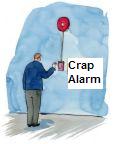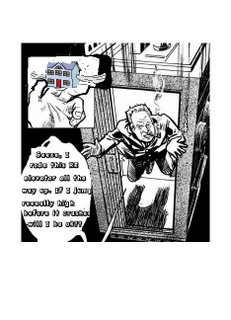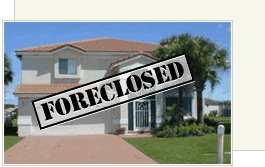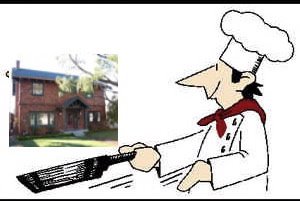 In today's exciting news the president and COO of Coldwell Banker, Avram Goldman, has an editorial published in the Real Estate section of the Sonoma Index Tribune.He has titled it: "Bursting the "housing bubble" myth
In today's exciting news the president and COO of Coldwell Banker, Avram Goldman, has an editorial published in the Real Estate section of the Sonoma Index Tribune.He has titled it: "Bursting the "housing bubble" myth.
He says in his introduction that we have been seeing warnings making the rounds for the past three years and we are still waiting for that "bubble" to burst.
He asks the astute reader why it hasn't happened yet and shouldn't they be concerned that it will?Then he answers his own rhetorical questions but clearly his answers would insult the intelligence of anyone who has intelligence in the first place.His first assertion is to say:The "bubble" theory is fundamentally flawed. He then gives several reasons why...
He says the term "bubble" as in the "dot.com bubble" is catchy as a metaphor, but it's inaccurate to compare homes with tech stocks as an investment.
He then asks if anyone believes the value fo their house- on average will plummet nearly 80% in a year's time and that some home values will actually go to $0?
He says that is what happened on the stock market when the tech market crashed... and proclaims THAT to be a bubble bursting.
Well Mr. Goldman, that is definitely an example of ONE bubble bursting. While the pricing and buying and selling patterns of the stock market and the housing market ARE different...you can indeed make some comparisons. In the stock market one can at least sell immediately and you don't have monthly costs associated with your asset, so your purchase is immediate, and your loss is immediate. The housing market has more risk associated with the costs if you are measuring on how immediately you can buy and sell. A mortgaged house has monthly payments and you cannot stop the loss by a quick sale. You have continuing loss until that magical moment when a greater fool steps in and takes the white elephant off your hands. THAT can be much more risky for an investor who is over-extended and speculating on price appreciation. All markets can take on bubble behavior, and just because each market has unique qualities does not mean it is bubble proof.Tech stock prices were overvalued and based on hype, good PR and buyer foolishness also called "Irrational Exuberance." Housing prices are also overvalued, based on hype, Real Estate Industry PR and buyer foolishness.The tech market crashed precisely BECAUSE the values were priced based on hype and speculation and not because of actual evidence of value. Investors believed a new paradigm had been created... and the old measurements of investment soundness and profitability or even having business plans were all out of touch with the new internet economy... and the prices would never go down, and get in before you miss out.... yadda yadda yadda.oops... and yes that bubble crashed because the market was inflated with hot air.Lets do a little history lesson courtesy of Andreas.com"In 1972, the (technology) dinosaurs were replaced by warm and fuzzy mammals: the Personal Computers. The new stage of evolution was "a stand-alone computer on the desk, used by an individual." Throughout the 70s and 80s, the computer consumer market was based on the idea of one person, one computer, alone. This included many species of mammals: DOS, Amiga, Atari, Apple, and so on, but they were all mammals: personal, isolated computers.
This offered many new possibilities and new companies were created, which meant lots of jobs. But eventually, people began to feel that "everything had been invented." People felt there was no more room for expansion or innovation. Companies stopped investing resources and people. A few companies (WordPerfect, Adobe, Corel, Novell, and so on) owned the DOS market.
That led to a slowdown by the end of the 80s and a two-year recession in 1991. Thousands of managers and engineers were fired.
California lost population very fast.
There was a six-month waiting period for U-Haul trailers for those leaving California. People with real skills and years of experience found it extremely hard to keep a job or get a new job in computers. Those with little skills or experience had no chance at all.
In 1993, Microsoft released Windows 3.0 and this opened a new market, with lots of new possibilities and opportunities. Take a successful but old DOS program, convert it to Windows, and sell the upgrade!
New companies were created, people were hired, and so on. This peaked in late 1995, when Microsoft released Windows 95 with the largest media event ever for a software package: the Rolling Stones, the Empire State Building in Microsoft colors, months of press coverage, and general global hysteria.
The Age of the Web
Remember how IBM didn't notice the little PCs? A few weeks before the glory of the Windows 95 release, a little company named Netscape did their IPO and earned two billion dollars in one day.
Jim Clark's $12 million dollar investment turned into a $800 million profit. That kicked off the shark feeding frenzy of all time as VCs (venture capitalists) began to pump billions of dollars per month into anything that had a web site.
Here was the next new stage of computer evolution: the networking of personal computers. All of those tens of millions of computers were quickly brought online and connected to each other with the web, modems, and browsers. Information flowed from one computer to hundreds of computers, and onwards to tens of thousands of computers, across a vast web of computers.
Five years later, April 2000, once again every possible web idea had been explored and tested. VCs had seen hundreds of business ideas every day. Millions of commercial sites were created. There were some 30 million web sites. Over 1.5 billion web pages were written in five years.
For every viable business idea, there were dozens of identical competitors (pets.com, petsmart.com, petfood.com, petstuff.com, petopia.com, and so on.)
VCs thought they could simply pour money into the web: all they needed was ten million dollars to buy a business plan, a logo, a Superbowl ad, a TV actor spokesman, a cute handpuppet, a nationwide brand, and several million users.
Some projects burnt up hundreds of millions of dollars and never made any money at all. Webvan burnt nearly a billion dollars and died.
In April 2000, Wall Street analysts and CMGI's VC newsletter (CMGI is the largest VC firm) wrote that the web boom was over.
Throughout Summer 2000, NASDAQ went into a long decline. By the end of the year, it was 40% lower than the start of the year. $2.5 trillion dollars in market cap value had evaporated."
The important sameness to remember between the tech bubble and the housing bubble, is the hot air, industry hype, investor foolishnes and flat out lies. There is no new paradigm at work here. Land did not get more scarce, the value of a house does not magically double in 5 years. You really can lose, and house prices really do fall.The tech bubble casualties were real and they felt the pain of the loss in value of an asset they speculated on, and the casualties of the housing bubble will visit that same vortex of pain. Just like VC's thought they could invest money in anything on the web and they couldn't lose. Today's greater fools thought they could pour money into anything with walls and they couldn't lose. How's that working for those FB's on the foreclosure list?I like this particular part of andreas.com's analysis..."How can you tell if your company is steaming straight at the iceberg? Look over the side and see if captain and his officers are getting into the life boats.
If the CEO, the VPs, engineering directors, CTO, CFO, or the hardcore engineers leave, then quietly take a life jacket. Ignore the PR and HR people who say that the company is doing fine. They are just playing dance band music."
Substitute CEO, VPs, engineering directors, CTO and CFO for Mortgage company executives, Industry Insiders, Builders, Speculators, Real Estate Agents selling their "investments" and Lenders consolidating, etc...So it should read like this for the housing bubble....If the Housing Industry Insiders (builders, mortgage co., lenders, speculators, real estate agents) start dumping their stocks, dumping their assets, renting and consolidating their assets and trimming their staff, quietly take a life jacket and get the phuck out! Do not take out a suicide loan. Do not give in to the industry's irrational appeal for you to keep feeding into the hype and their greed.Ignore the PR and other talking heads who say the housing market is doing fine. They are just playing dance band music.Back to the thick and pungent merde being spread on this toasted market...Avram Goldman goes on to say that even the worst case scenarios by the most pessimistic economists have predicted prices may drop 15-20%.... after a run-up of 40-50% or more in recent years.
Oh yes... he cites the run-up. Does he mean the run-up that is based on speculation, loose lending standards and the fed bottoming out the interest rates...? ...and as far the % of price declines ...Better check the price reduced lists... Further, losing 20% of the value of your house when you have little to no equity is a pretty big deal to a seller who is financially strapped."A full 29 percent of people who took out mortgages or refinanced in 2005 have no equity or negative equity in their homes, according to Christopher Cagan of First American Real Estate Solutions, a data provider."
"That's a shocking figure, compared with 10.6 percent of people who took out mortgages in 2004. "I would not want to be one of those people," says Mr. Cagan."
Additionally..."The economic research group said the US property market was crumbling, taking away the key prop of the consumer boom."
"The real US hard landing starts now," said Charles Dumas, the chief global economist. "It's going to be a long grind for two or three years, not as bad as Japan but going in that direction."
"Americans withdrew over $600billion in equity from their homes last year, according to a Fed study, giving them a windfall to help pay fuel bills and keep the malls humming. A property slide will bring the process to a halt, while many buyers are saddled with negative equity."
"The price of new houses in the US has been tumbling for five months at an annualised rate of 18.4%, while mortgage applications are down 20%."
'"There's been a huge jump in inventories, which are now at the highest level since 1996 and it is only going to get worse with a surge of homes built in the first quarter," said Mr Dumas."
"Household balance sheets have been trashed in the process, and now there isn't anything left to trash," he said. "America cannot stabilise both growth and debt levels at the same time. One of them has to give."
"House prices have been falling hard for five months and all the guidance from builders points to a continued fall. You cannot ignore the threat," said Bernard Connolly, chief global strategist.
While the value of a house may not reach ZERO there is a big likelihood the bank balance of an F'd Borrower will see ZERO.
When that happens it will be just like the tech market crash in that if a person lost all value of their asset and ended up with zero money ... it is equal to the situation of an F'd Borrower who finds they have no equity, and their costs exceed their income and then they have to bring money to a closing.
When a person spends more than they have in the bank, they end up in the negative numbers in their bank account. So perhaps this is even worse than losing it all in the stock market. At least in the stock market your losses stop at zero. In the housing market your losses can continue below zero. Not a good situation.
Here's what the Consumer Federation of America has to say about today's sophisticated and savvy consumers....
"While the lending industry has characterized nontraditional borrowers as financially sophisticated and savvy consumers, the truth is that many are far from affluent and could be betting the house on their mortgage," says Allen Fishbein, director of credit and housing policy at the Consumer Federation of America. "Because homeownership is so critically important in financial security, these Americans are unwittingly putting their entire financial livelihood at risk."
"The federation analyzed certain borrower and loan characteristics of more than 100,000 mortgages originated between January 2005 and October 2005. Their findings show that more than one-third of interest-only borrowers earned below $70,000 annually; about 1 in 6 earned less than $48,000. Some 35% of borrowers with the option to make a payment or not earned under $70,000; 1 in 8 earned less than $48,000."
"Truth is, an option ARM is appropriate for a very small part of the population," says Steve Habetz, president of Threshold Mortgage in Westport, Conn. "Think of a doctor just out of medical school, maybe with kids, and who wants a home in a desired school district and so is maybe going after more house. Negative amortization is worth it in this case because ultimately, that doctor's income will pick up and he's cut out transaction costs of moving up in house soon after that income kicks in."'
"Adds Habetz: "But that's not who [this loan] is being sold to. It's sold as this great cash-flow thing, eating up equity."'
Back to Mr. Goldman's pontification...
His second rebuttal is to say: the "bubble" theory ignores the basic law of supply and demand. He claims we simply have more demand for housing than we have supply of homes for sale.
Really? Here are the numbers:
Sonoma County listings progression
3/20/06 = 1742
3/26/06 = 1766
4/03/06 = 1888
4/19/06 = 2828
4/25/06 = 2868
4/30/06 = 2898
5/07/06 = 3052
5/13/06 = 3187
5/18/06 = 3310
5/25/06 = 3412
6/04/06 = 3489
Bareis norcalmls
Price Reduced (last 30 days) = 949
ziprealty.com
Sonoma Valley listing progression
2/14/06 = 172
2/14/06 = 183
2/24/06 = 193
2/25/06 = 200
2/27/06 = 214
3/01/06 = 219
3/04/06 = 220
3/12/06 = 230
3/20/06 = 236
3/26/06 = 238
4/03/06 = 268
4/19/06 = 291
4/25/06 = 305
4/30/06 = 315
5/07/06 = 328
5/13/06 = 346
5/18/06 = 363
5/25/06 = 372
06/04/06 = 380
GMAC
Price Reduced (last 30 days) = 99
ziprealty.com
As for price data... until the Real Estate Industry has to track the original price, the actual days on the market and how many times the price was reduced and also account for any concessions or additional reductions at the time of purchase, their current drivel about minimal price reductions amounts to nothing more than shit in shit out data entry.
Just because the real estate & lending industries act as if it is appropriate to LIE in print when they report data, doesn't make a lie any closer to truth.
He says in the past decade, population growth has outstripped the supply of housing units by 100,000 every year. He adds that even if the population growth were to come to a halt it would take a while just to work through the existing pent-up demands for homes from those people already here.
LOL... population growth does NOT automatically equate to demand for buying a house. If that were the case, then there would be no wait time to sell a house. Last month's data says it is taking 85+ days in this county. In Sonoma it is taking 100 days to sell a house. Where are the barbarians at the gate who can't wait to buy a house here?
Additionally, when incomes grow THEN you might see a correlation with demand, provided the incomes are high enough to be able to afford to buy a house. We have already established in Sonoma County that is NOT the case, and the large influx of population here has been attributed to birth rates and the legal and illegal immigrant population.
The immigrants from Mexico according to county data regarding wages would make a claim of immigrants demanding to buy houses laughable at best. Take the income and housing affordability data for the rest of the county and you are forced to keep on laughing.
His third assertion is to say: the Northern California economic base is stronger and considerably more diverse than it was in the late 80s and early 90s and he mentions these were the last downturns of any significance in the housing maket.
ooh... and I suppose that those who lost their jobs and their houses and filed bankruptcy due to those downturns didn't feel it was a BIT similar to the tech dot.bom bubble where foolish investors lost their asses?
Here's how Herb Sandler, Founder of Golden West characterized the 90's housing crash in California when unemployment reached 10% and housing prices plummeted all over the state...
'"What you had was a deep, deep real-estate depression. I emphasize depression," says Mr. Sandler."
However, Avram Goldman says... that Silicon Valley is still the heart of the nation's tech sector and technology has certainly rebounded quite well from its worst of 2001 and 2002. He says our economy is sound and expanding.
ummm.... Sonoma County? How many of you work in Silicon Valley and make Silicon Valley salaries? What has Silicon Valley done for you lately?
Last time I checked:
* Employment peaked in Sonoma County in 2001 at the end of the tech boom.
* By 2003, the economic downturn had wiped out 7,600 of the tech jobs, based on average annual employment.
* Through 2005 the number of jobs in the county is still 6,500 jobs, below 2001.
* In Sonoma County, the average wage is $42,171
* The Press Democrat study found that 58 percent of the new jobs created between 2003 and 2005 paid below the average wage.
* It is estimated that 60% of the new jobs added between 2001 and 2003 were lower-paying service jobs that are below the county’s average wage of $42,171 per year.
* Fifty-eight percent of new jobs between 2003 and 2005 paid below the average wage.
** Per-capita income fell 2.6 percent in 2005.
*Adjusted for inflation, per-capita income in 2006 will increase 1.9 percent, to $29,113.
* Only 7 percent of households could afford a median-priced home in Sonoma County at year's end 2005 compared with 12 percent a year ago.
* In 2005 a Sonoma County household needed a minimum income of $152,595 to buy the typical home, based on prevailing interest rates for a 30-year mortgage.
* In 2004, the minimum income needed was $124,650.
* Adjustable-rate mortgages accounted for 69 percent of loans to buy Sonoma County homes last year. In 2004 more than 30% were ARMs
* Buyers had to increasingly stretch financially to purchase homes. A majority turned to interest-only and other adjustable-rate loans, often making little or no down payment when purchasing homes. Local mortgage lenders estimate 80% of their clientele have opted for some form of variable payment negative amortizing take it in the butt loan products.
* As interest rates rise, and there are conversions from adjustable rate mortgages to fixed, defaults are likely to rise.
* Default notices are rising, signaling business instability and consumer insolvency.
According to the realtytrac.com notice I received today:
Foreclosure Properties active in Sonoma County = 509
Reasons foreclosure rates have increased:
* Banks relaxed lending standards to make it easier for people to purchase homes; however, for some of those homeowners, once they have an unexpected financial hardship, such as medical bills, a lost job or necessary car repairs, they stop making mortgage payments.
* Many homeowners put little to no money down when they bought their homes and currently have little or even no equity in their home and thus nothing to fall back on. And in some cases, these homeowners then took out home equity loans or lines of credit and now owe even more.
* Homeowners have relied on the recent double-digit increases in home prices to build up equity in their home instead of paying down more in principal. As housing prices increase more slowly, many homeowners will not be able to rely on high home values to cover their debt loads.
From a previously posted article:
'"The slowdown appears to have taken hold in the North Bay and across California, said Gary Zimmerman, regional economist with the Federal Reserve Bank of San Francisco."
April Sales Data
"Home prices could level off, Zimmerman said at conference on North Bay real estate trends. ... the housing market should hold its own unless there are major job losses and a flood of homes hit the market, Zimmerman said."
Even the sponsor for the Press Democrat's printed real estate informercials says this: (from a previously posted article)
"Increasingly, sellers must reduce their prices to attract buyers, agents and brokers said."Last year people got more than their asking price. This year it doesn't look like that and people need to price accordingly," said Rick Laws, Santa Rosa manager for Coldwell Banker, which prepares the monthly Press Democrat home sales report."
A bit of a scoop from Sonoma Housing Bubble reader, Bluzer tells us that....
"A reliable source informed that it seems there is a very good chance that Cisco and/or Alcatel are in the process of moving out there operations from Petaluma. Both moving to Texas. Alcatel and Cisco employ over 800 folks - and these are good solid (many of them 100K+) jobs. Should either of these companies leave Petaluma think of what it does to the average wage - and affordability. To say nothing of the many more houses that will doubtless enter the market. A nightmare scenario indeed - but one with a very high probability of coming to pass. You heard it here first."
Additionally, from my own sources Cisco (from the Cerent group) did a round about 8 months ago that was very quiet...and....* Sonoma County Employment Development Dept. showed the county lost 600 jobs between February and March 2006.
* High-tech manufacturing, lost more than 300 jobs
* OCLI has done some layoffs, and Agilent is planning to drop jobs by end of this year.
* Real Estate represented 50% of jobs created in the State of California 2004-2006
* In Sonoma County since March 2005 the construction industry added 1,300 construction jobs
* Construction-related industries and temporary labor agencies, added nearly 1,500 jobs
* Construction jobs now account for one out of every 10 jobs in the county
* Tourism, added 800 jobs
242,800 Sonoma County residents are working, including those who work in other counties.
Some 10,700 residents are looking for work, resulting in the 4.2 percent unemployment rate.
These numbers do not include people who are no longer looking for a job or are working fewer hours than they would like. Net job growth for the county has been: 2900 jobs
So help me out here... Construction added 1300 jobs, and construction related industry added another 15oo jobs and real estate was half of the job growth for the past 2 years... What do y'all think is going to happen next?Where do those real estate jobs go when housing sales diminish like what we have seen lately? Where do the construction jobs go? Where do the construction related jobs go?Looks to me like wiping out just the construction and real estate jobs added in the last year would take us to a net job loss situation. How does that make for a fundamentally sound and expanding economy? How many of these people bought houses during the bubble? How many left secure and lucrative careers to enter into the construction and real estate industries? (don't laugh!)Goldman's last and final blow is that mortgage rates may go up a bit, but they're still a relative bargain. He encourages stupidity by reminding the foolish among us that the current mortgage rates are at the lowest levels since President Kennedy was in the White House.
Mortgage rates may be a bargain, but over-inflated housing prices are NOT. You are better off with a $300k mortgage at 15% than a $600k mortgage at 6%. Don't be foolish enough to fall for this flimsy argument. Houses do not magically double in sustainable value over 5 years. You are better off with double the interest rate rather than double the price.He says that while some believe in the "housing bubble" most people who have followed real estate over the years aren't particularly concerned.
Judging by the math abilities, faulty reasoning and lack of required education of clerks and professional wannabes flocking to the industry, it is perfectly understandable why they aren't concerned. Makes you feel a little compassion for those RE professionals who are intelligent when they get lumped in with those who are dumb as a bag of hair that represent their profession.Mr. Goldman makes an attempt to throw in some statistics to convince the reader of his position... He cites that according to California Association of Realtors, over the last 35 years the median sales price of homes in Californa has decreased 7 times. 6 of those 7 times he says the drop was under 3.7%, and one time it was 4.5%.
He says the reason for this is that people want to live here for all of the financial and quality of life issues that brought most of us to the Golden state and to Silicon Valley.
bwahahahahahahahahaha!!! Let me ask again... Sonoma County, what has Silicon Valley done for YOU lately? Where are your Silicon Valley jobs? Where are your Silicon Valley salaries?Secondly,- CAR subscribes to the fudged numbers, shit in shit out data entry practice. This is a source that does not meet the credibility smell test. They are not required to maintain nor report accurate data. Their industry depends on manipulation in order to separate a fool and his money... they have everything to gain by massaging their data for their benefit, and there is no oversight group that forces them to maintain the integrity of their data.Further, if real estate markets are local as these assclowns keep telling us, then why use averaged, adjusted, and massaged numbers spread out over the state to shore up his flimsy arguments?Does every city/town/hamlet in California appreciate and depreciate simultaneously?Are all areas created equal? Is each area equally desirable? Why are prices different from one county to another? Do you remember the 90's? Do you remember in the 90's when real estate crashed and in hard hit areas houses were selling for LESS than they were selling for in the 80's?Oh right... he didn't mention that data to you.Here is one example....In 1991, California entered one of the severest recessions in the history of the state and stayed in this prolonged recession from 1991 through 1995. Housing prices fell sharply in many areas.
During this five-year period, the decline in property values was significant and widespread, with home values falling as much as 30 percent in many locations, and 40% and more in some. The decline was sharper in urban areas and in the commercial sector and particularly hard hit in Southern California.
The decline in Los Angeles was greater than in other areas of the state.
Los Angeles County is the largest in California, and accounts for approximately 30 percent of the assessed value of property/housing in the state, and it experienced some of the sharpest declines in real estate values within the state.
From their peak in the first quarter of 1990 through the first quarter of 1995, housing prices fell throughout the county by 27.5 percent. This was the first significant decline in
housing prices since the passage of Proposition 13.
Remember this from the Los Angeles Times...?"
1993: It’s definitely a buyer’s market. Some people are saddened by the fact that current prices are 50% of what they were in the 1980’s.""
The housing bust in Southern California is clearly negatively impacting the California economy and the national economy at large. Sellers are desperate to sell (and some peopletaking extreme measures like putting huge “for sale”signs on their lawns for passing planes to see).
Folks who waited out the boom to buy at the bottom are being handsomely rewarded for their patience."And these...A sad Westside story: Home prices have declined up to 50% since late 1980sMyers, David W; Los Angeles Times; May 28, 1993;D; pg. 1Couple Put Up a Big Sign of the Real Estate Slump Housing: They write `For Sale’ in huge letters ontheir lawn, hoping to attract attention frompassengers in planes and jets on flight path to LAX.DICK WAGNER; Los Angeles Times Apr 29,1993; pg. 81995: Some parts of the Southland are recovering others are not. People with “negative equity” are in despair.Study of Homeowners Finds `Negative Equity’ a Problem Real estate: Nearly 5% owe more than homes areworth. Impact hinders the state’s economy, experts say.DEBORA VRANA; Los Angeles Times; Jul 6, 1995; pg. 1Back to us...I zillowed a friend's house in Sonoma just for fun to see the price history...The house was sold in 1993 for a price under 200k. In 1997, just 4 years later the house was sold again for $52,000 LESS.In 1998 but only 4 months after the previous sale the house was sold for $30k more, but still a net loss of $22,000 from the 1993 price. Over a five year period this house lost value.Now... in 2004, at the almost peak of the bubble this same house was sold again, and this time the sales price was well more than double the 1998 price and the 1993 price. Does this sound rational to you?Mr. Goldman's closing comments are that he doesn't lose any sleep about whether his home will plummet in price.

















